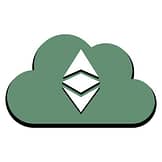It’s 2023. The crypto market is deep into a frigid winter. All we seem to see are bull traps that are followed by an even bigger sell-off than the last one. Bitcoin is more than 50% off of its all-time high prices and at this point, it’s unclear if it will ever return to those levels again. Crypto exchanges like FTX and Genesis are collapsing into insolvency. Popular DeFi protocols like Terra Luna and Time Wonderland are completely gone, taking billions of dollars of investor money with them. Given this current environment, is Ethereum a good investment in 2023?
Ethereum, like any investment, has its own risks, but also, potential rewards. As with any investment, it is important to understand the risks of investing in cryptocurrencies. With that being said, of any cryptocurrency on the market, Ethereum has the most potential in terms of real-world application. Of course, Bitcoin is the gold standard and is a legitimate investing asset. But Ethereum and its smart contracts, have the potential to truly define the way we use Decentralized Finance and the blockchain in the future.
Whether you are a crypto whale or completely new to the game, Ethereum is one project that is critical to understand. Here at SavvyCanadianFinance, we encourage a diversified portfolio of assets. While we don’t recommend Yolo’ing into meme coins, owning Bitcoin and Ethereum is more than acceptable in this day and age. In this article, we will explain what Ethereum is and why you should consider investing in it in 2023.
What is Ethereum?

You probably know Ethereum from its cryptocurrency token, Ether. The two are often used interchangeably, but Ethereum refers to the network protocol and Ether (ETH) are the native tokens. Ethereum is a decentralized and open-source blockchain network that utilizes smart contracts and decentralized applications or dApps. Ethereum was first proposed in 2013 and launched in 2015 with the help of other founders like Gavin Wood, Joseph Lubin, Anthony Di Iorio, and the founder of Cardano, Charles Hoskinson.
As of 2023, it is the second-largest crypto network by market capitalization, trailing only Bitcoin. It was founded by a group of people, most notably Vitalik Buterin. It is the utility of Ethereum that makes it arguably the most important crypto network in the industry. Developers have the flexibility to build and deploy their own decentralized applications. This is the foundation for Ethereum’s decentralized finance or DeFi networks.
On top of the Ethereum network, there are many other blockchains that are built using the Ethereum technology. Many of these are called Layer 2’s or L-2’s. Examples of these networks include Optimism (OP) and Arbitrum. Other networks also use Ethereum technology including Tether (USDT), Shiba Inu Token (SHIB), and Polygon (MATIC).
Who is Vitalik Buterin?
Vitalik Buterin is widely known as the founder of the Ethereum network. He is a programmer who was born in Rusia but moved to Canada with his family at a very young age. In 2013, Buterin published the white paper for Ethereum, proposing a decentralized network that would utilize smart contracts. Buterin was so dedicated to Ethereum that he dropped out of the University of Waterloo to pursue it.
He remains a key figure in the crypto industry to this day. Buterin is outspoken about the decentralization of global finance and is a supporter of many crypto projects. He often speaks at crypto symposiums and is widely regarded as the most influential person in the space.
What are Decentralized Applications or dApps?
Decentralized Applications are applications that run on a blockchain network like Ethereum. They are built on top of decentralized protocols rather than a single server, and use smart contracts to execute functions and tasks.
The key to dApps is that they are completely decentralized. This means they operate autonomously as open-source code and are not controlled by a group or owner.
Another feature is that they need to use a consensus mechanism to secure and validate the network transactions. For Ethereum, this mechanism is called Proof of Stake, which requires network validators to stake or put up their own Ether tokens as collateral. If they are chosen to validate a node, a new block is created on the blockchain, and they are provided with a reward of Ether. To do this, you need to stake 32 ETH, which is worth about USD $50,000.
dApps can be used in a number of different ways including gaming, social media, and decentralized finance.
Is it Better to Buy Bitcoin or Ethereum?

Ah the age old question: Bitcoin or Ethereum? There is a strong case for owning both cryptocurrencies because they are both considered the safest, blue-chip coins. The comparison of Bitcoin and Ethereum is like comparing apples to oranges. Ethereum is focused on decentralized applications, while Bitcoin is a storage of wealth and currency.
There is no right answer here because both are vital to the success and long-term health of the crypto industry. As always, do your own research and use this article as an introduction Ethereum. If you want to learn more about Bitcoin, check out our article: Is Bitcoin a Good Investment in 2023?
What is Decentralized Finance (DeFi)
Decentralized Finance or DeFi is a financial system built on top of a blockchain network like Ethereum. DeFi utilizes dApps to implement rules for a financial system that is written into the Ethereum blockchain. Users can execute functions like lending, borrowing, trading, and insurance without needing to go through a third party like a bank.
Its intention is to create an open financial system that is accessible by everyone with an internet connection. DeFi is built on the pillars of decentralization, transparency, and trustlessness.
DeFi apps are built on smart contracts which are self-executing agreements that are written directly into the code of the software. This is where you see popular financial services like yield farming and crypto lending and borrowing.

What is Ethereum Staking?
When you stake Ethereum you are holding and locking up Ethere tokens in a wallet. This is completed in order to participate in the validation of transactions on the Ethereum blockchain. It is a way in which Ethereum holders can be rewarded for helping to secure the network.
It should be noted that the launch of Ethereum 2.0 or Serenity, has moved Ethereum from Proof of Work to Proof of Stake. Proof of Stake uses far less power than Proof of Work which is one complaint about how Bitcoin is produced.
Keep in mind that there is always a risk when staking Ethereum. You can lose on wild swings in price value, or be hacked. Always do your research before taking part in something like Ethereum staking!
Is Ethereum Staking Profitable?

Ethereum staking can be profitable because it allows you to earn Ether rewards for validating the network. Unfortunately, the barriers to entry can be high as you need about USD $50,000 to be a network validator. Not a lot of people have that lying around and even fewer would be willing to invest it into cryptocurrencies.
The amount of the rewards earned through staking can vary depending on a number of factors. These include the total amount of Ethereum being staked, the total number of validators, and the rate of inflation.
It is also important to know that staking can be risky and you do have a chance of losing your staked investment. Also, there are no guarantees when it comes to the crypto market. Anything, including Ethereum, has a chance of falling to zero at any time.
Conclusion: Is Ethereum a Good Investment in 2023?
At SavvyCanadianFinance, we will never provide you with investment recommendations. You should always do your own research and never take investment advice from something you read online. We hope you can use this article as a starting point for getting into the world of Ethereum. Ultimately, you might choose not to and that’s okay!
Ethereum has near infinite possibilities in terms of its utility. It truly defines what is meant by decentralization and trustless finance and applications. Is Ethereum better than Bitcoin? They are both equally great and ultimately, share the same goal. For most crypto investors, there is room for both in any diversified portfolio.
Stay Savvy!
